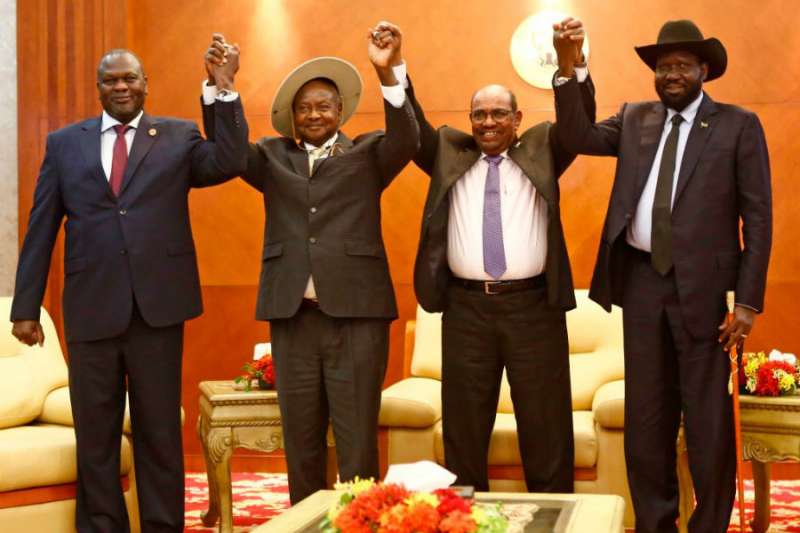More than four-and-a-half years after a devastating civil war broke out in the world’s youngest country, a permanent ceasefire has been declared by South Sudan officials and rebel leaders.
But for the peace agreement to last, Catholic and world leaders stressed that the nation’s leadership must be ready to rebuild society.
Bishop Barani Hiiboro of Tombura-Yambio, president of the Sudan and South Sudan Catholic Bishop’s Conference, welcomed the ceasefire, according to Independent Catholic News, but added that “if it is to mean anything for the suffering people of South Sudan, then our leadership must face the task of rebuilding our broken pieces - social and political relationships, the fragile economy, and the infrastructure of our states, devastated by the conflict.”
President Salva Kiir of South Sudan met last week with rebel leader and former Vice President Riek Machar for the first time in two years. The talks were held in Khartoum, the capital of Sudan, where Sudanese President Omar al-Bashir helped broker the agreement, along with leaders of Ethiopia and Uganda.
Under the latest agreement, both sides are expected to withdrawal forces, release prisoners, and open avenues for humanitarian aid. A transitional government will be formed for a 36-month transition period, and the peace process will be monitored by the African Union and the Intergovernmental Authority on Development.
Less than two years after South Sudan gained independence in 2011, civil war broke out, when Machar was accused of attempting a coup. The violent conflict has created a massive famine and left hundreds of thousands dead and millions more displaced.
The United Nations had threatened to consider travel bans and asset freezes on South Sudanese leaders if the violence had not ended by the conclusion of June.
“This conflict has left millions of people across the country in desperate need of food, clean water, health care, sanitation, shelter and protection,” said Cathy Hynds, a local representative for the UK aid agency CAFOD, according to Independent Catholic News.
“[U]ltimately as the people of South Sudan mark seven years of independence, they need its leaders to redouble their efforts towards a true and lasting peace, as a first step to achieving prosperity; so that people can return to their homes, schools, farms and businesses, to rebuild their lives and communities.”
Numerous peace agreements have failed in the past, including the Agreement on Cessation of Hostilities signed in mid-December 2017. Both warring factions have been accused of violating terms of the agreements.
U.N. Assistant Secretary-General for Peacekeeping Operations Bintou Keita applauded the peace efforts but stressed the need for more work in an address to the U.N. Security Council on Thursday.
“I must reiterate that peace will only be sustained if the revitalized agreement is inclusive, fair, addresses the root causes of the conflict and engages all stakeholders, including women and youth,” she said, according to the Sudan Tribune.

